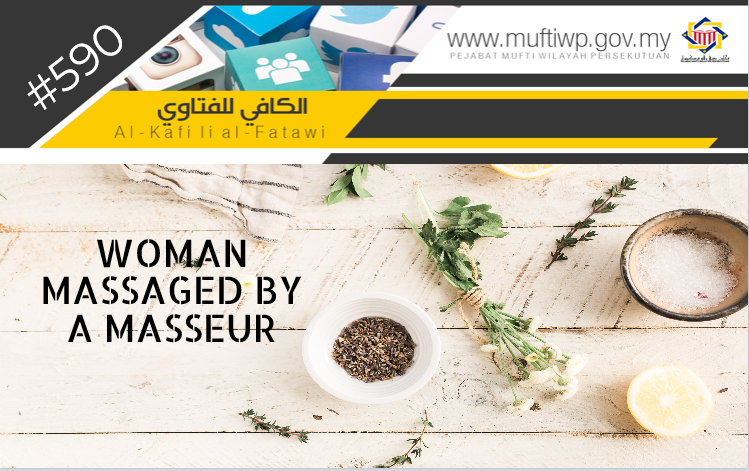Question:
Is it permissible for a woman experiencing back pain to get a massage by a masseur but the masseur uses a thick cloth to cover the patient’s body and her awrah is covered?
Answer:
Alhamdulillah, praise and thanks to Allah for the countless blessings He has blessed us all with. Blessings and salutations to the Prophet Muhammad PBUH, his wives, his family, companions and all those that follow his teachings to the day of judgement.
Seeking treatment is a necessity and sometimes it is even wajib to seek treatment as an effort to treat an ailment.
Considering the above issue, if it is the only available option, which is getting a massage from a masseur, then it is permissible in syarak. However, it is best to first try finding a masseuse and if there are none, then it is permissible to get a massage from a masseur.
Even if it is permissible in syarak, there are several matters that should first be taken into consideration [1]. Among them are:
- Another mahram must be present in accompanying her, whether it is her husband or another trustworthy woman.
- It is on the condition that there are no other masseuse/female doctor for woman or masseur/male doctor for man. Thus, it is permissible in syarak to have someone of opposite gender to treat a patient. The same is stated where a Muslim is prioritized before a non-Muslim to treat the patient.
- Only the affected area is permissible to be observed and treated.
The evidence on the permissibility is according to a hadith narrated by Jabir RA:
أَنَّ أُمَّ سَلَمَةَ، اسْتَأْذَنَتْ رَسُولَ اللَّهِ صلى الله عليه وسلم فِي الْحِجَامَةِ فَأَمَرَ النَّبِيُّ صلى الله عليه وسلم أَبَا طَيْبَةَ أَنْ يَحْجُمَهَا
“Umm Salamah, the wife of the Prophet (ﷺ), asked the Messenger of Allah (ﷺ) for permission to be cupped, and the Prophet (ﷺ) told Abu Taibah to cup her.”
Sahih Muslim (2206)
Wallahua’lam.
Endnotes:
[1] See Al-Mu`tamad fi al-Fiqh al-Syafi`e. Dar al-Qalam, (4/50)


